National holidays are ‘almost always political’
By Joey Watson
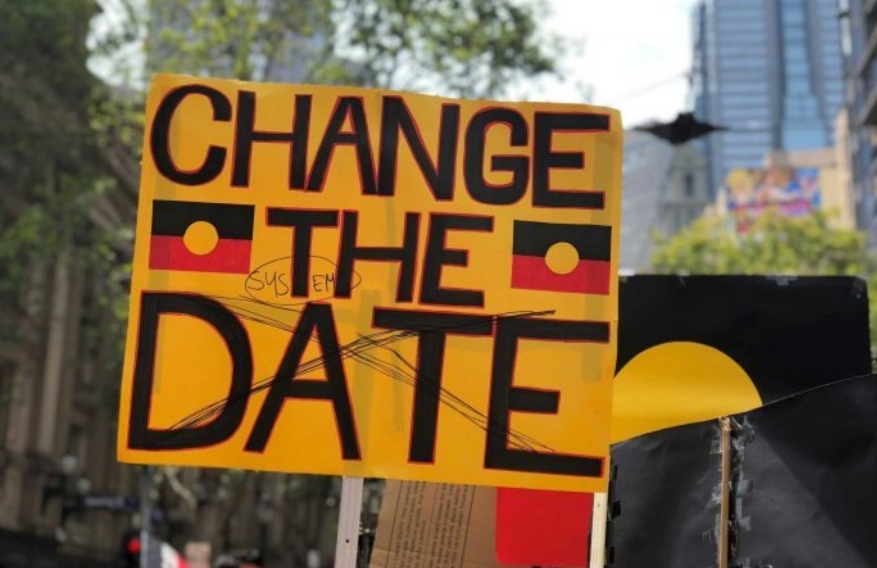
PHOTO: Many Aboriginal and Torres Strait Islander people see January 26 as “Invasion Day” or “Survival Day”.
Australia Day, which commemorates the landing of the First Fleet at Sydney Cove, has become a source of deep division and debate.
In recent years many have called for a new national holiday that respects the experience of Indigenous Australians — though others believe the January 26 date should stay put.
And while few other national days attract the same controversy as Australia Day, the politics around the celebration are an example of a global trend.
“National days and national celebrations are part of a national narrative, and these are almost always political,” political psychologist James Liu says.
So what do national days represent in comparable countries?
New Zealand’s ‘biculturalism’
If Australia was looking for an alternative national day, it could perhaps take lessons from New Zealand.
Its national day, Waitangi Day, is a reflective affair that has indigenous-state relations at its centre.
It commemorates the Treaty of Waitangi, regarded as New Zealand’s founding document, which in 1840 gave Maori consent for Britain to establish a government in New Zealand.
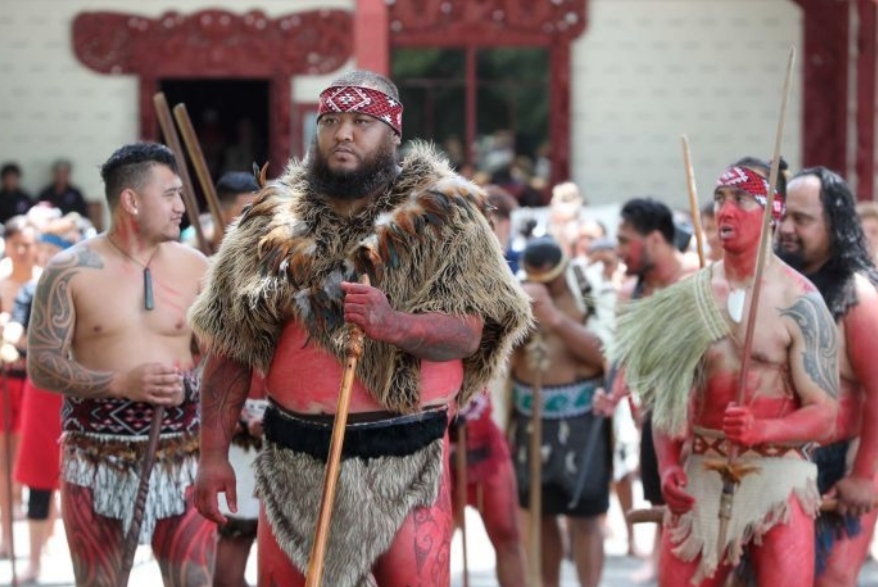
PHOTO: Powhiri, a Maori welcoming ceremony, during last year’s Waitangi Day celebrations.
The day revolves around the town of Waitangi itself, where political dignitaries hear speeches from Maori leaders, often debating the issues of the day.
Elsewhere in the country, Maori leaders educate local communities on traditional culture to celebrate and reinforce their customs.
For Professor Liu, Waitangi Day is an example of New Zealand’s “biculturalism”.
“There is a structured dialogue between the dominant white group and an indigenous group which creates a better model for ethnocultural diversity,” he says.
“New Zealanders are really sensitive about fairness and both groups understand their power and therefore debate is more spirited and even.”
But Waitangi Day is not without criticism.
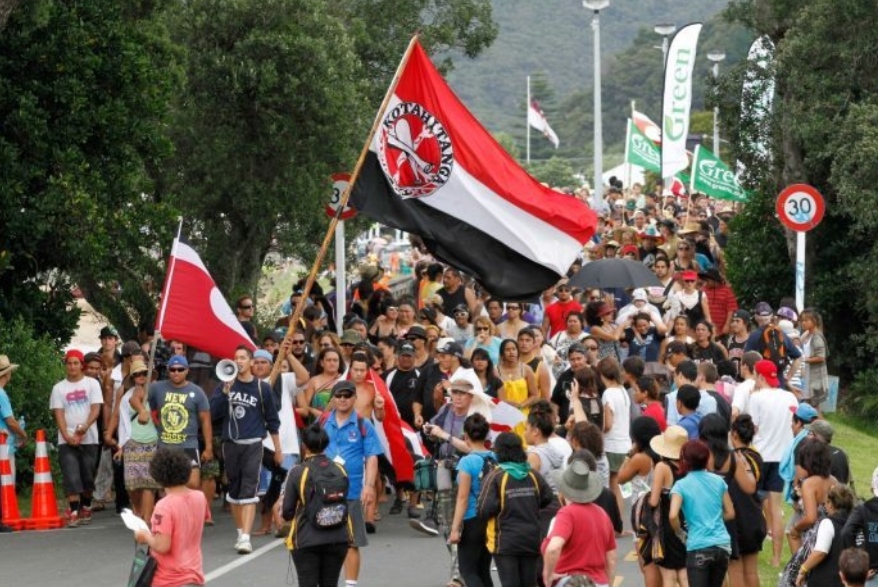
PHOTO: Waitangi Day is seen by some people as “an opportunity for protest”.
Commentators have denounced the day as excluding New Zealanders of British decent.
It is common for activists to stage protests. At the 1990 Waitangi celebrations a young Maori woman threw a T-shirt at the Queen.
“It’s an opportunity for protest so all sorts of humiliating things can happen to white politicians,” Professor Liu says.
“This division has caused some to call for the creation of a new national public holiday that they say will be more representative of all New Zealanders.”
England’s quiet day
Visit England on St George’s Day and you might become overwhelmed with, well, the lack of celebration from a country known for its deep-rooted traditions.
The day to celebrate the patron saint of England (as well as Ethiopia, Georgia, and Catalonia amongst others) isn’t even a public holiday.
“Growing up in England I couldn’t even tell you when St George’s Day was half the time,” cultural researcher David Rowe says.
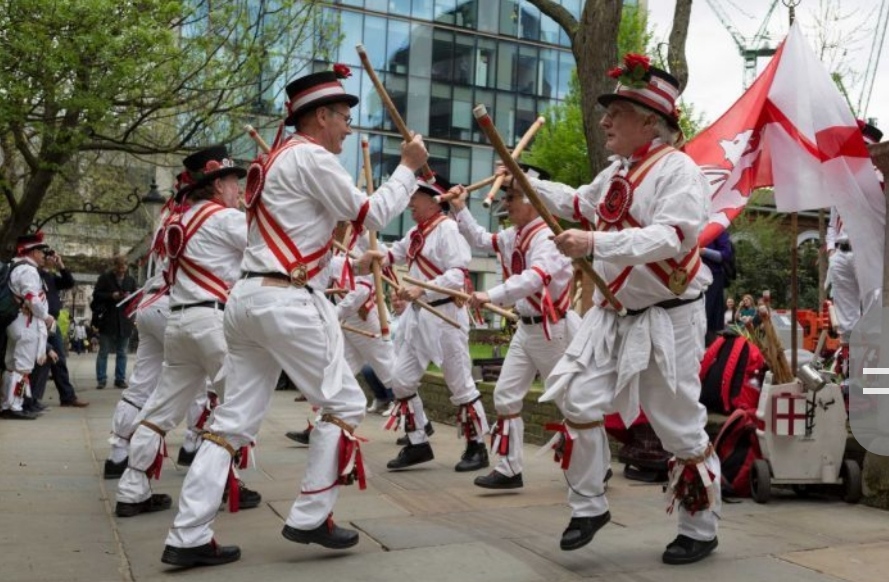
PHOTO: While these ‘Morris Men’ keep a folk dancing tradition alive on St George’s Day, it is a relatively quiet national holiday.
Professor Rowe suggests that England’s quiet national day might come from anxieties about spreading disunity with the United Kingdom.
“In the past there was some reluctance to emphasise Englishness as opposed to Britishness for fear of undermining the United Kingdom,” he says.
“The UK is already disunited with Scottish nationalism and Welsh nationalism, even Cornish nationalism, all of whom were effectively colonised by the English.
“If you remind people that they were colonised by one country, rather than emphasising shared history and culture, you’ll end up with a disunited kingdom.”
The USA’s slave-owning founder
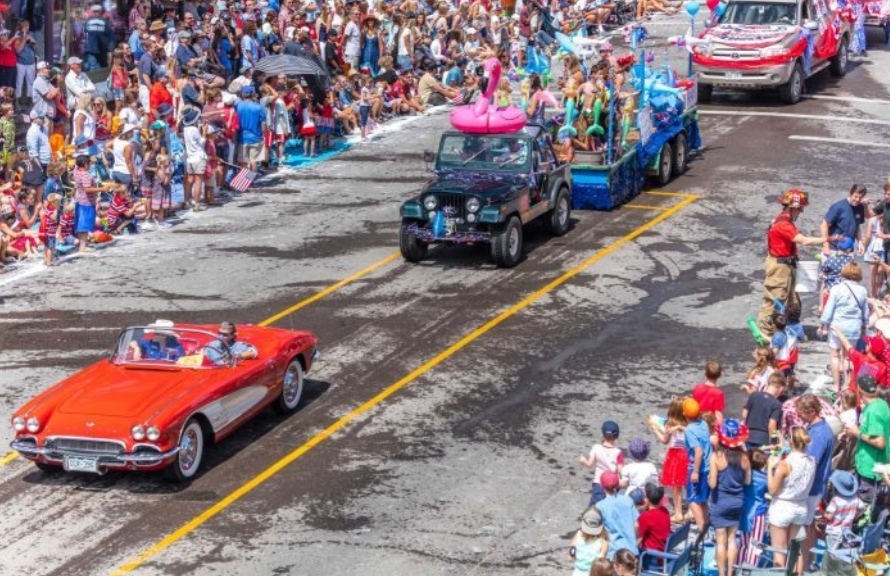
PHOTO: Black and white America might have different relationships to July 4.
While Australia Day marks the arrival of the British, America’s national day is all about their leaving.
In the late 18th century the American colonies went to war to rid themselves of British colonial rule and establish an independent republic.
As the war raged, the Continental Congress voted in favour of a resolution for independence from Great Britain.
On July 4, 1776, the Declaration of Independence, from which the national holiday gets its name, was formally adopted.
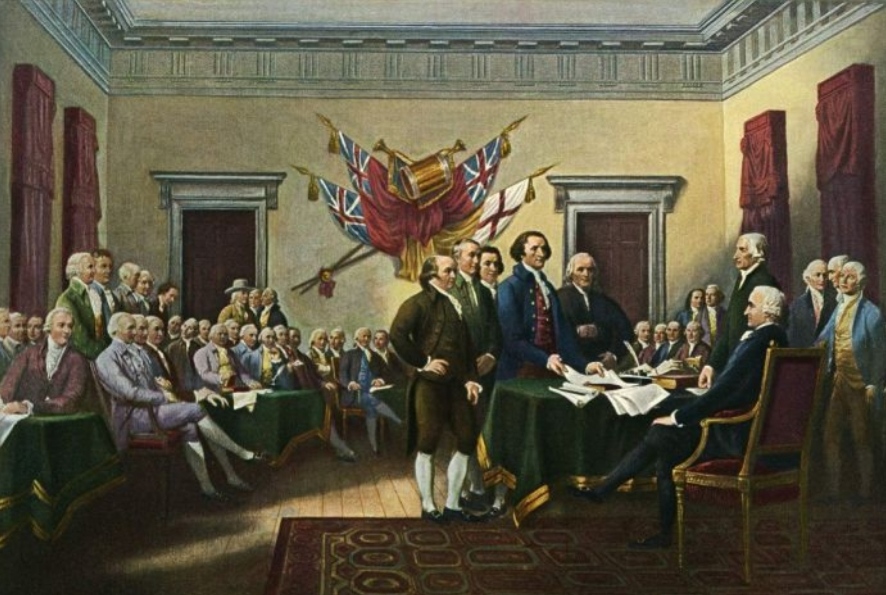
PHOTO: Signing the Declaration of Independence marked an important moment in history, but not all Americans want to celebrate it.
Gradually evolving from its anti-British roots, Independence Day has become a staple of American patriotism.
But the American national day is imbued with politics of its own.
“While it’s hard not to be moved by the patriotism that comes from a story of rising up and resisting British rule, only a small part of modern America is represented,” Professor Liu says.
“For example, indigenous people who are a demographic minority are invisible in the story that created the national day.”
Then there is the fact that Thomas Jefferson, who was largely responsible for drafting the Declaration, was a slave owner.
“The founding document, with its concern for freedom, was written by Thomas Jefferson and is entirely hypocritical given that he himself was a slave owner,” Professor Lius ays.
“That means that many black Americans, descended from slaves, are asked to celebrate the national day with everyone, despite their very different relationship to July 4.”
Quebec’s Fête nationale
To America’s north, French Canadians who feel excluded from many of the traditions of their English-speaking counterparts have enshrined a national day of their own.
Canada Day harks back to 1867 when three separate colonies in British North America united to form a single dominion called Canada.
The uniting moment, comparable to Australia’s federation, has been a national holiday since 1982. It is known for parades, carnivals, barbecues, and concerts.
As in New Zealand, Canada Day strikes a reconciliatory tone. In this case it is with French Canadians, many of whom hail from the province of Quebec.
“The relationship, both in conflict and reconciliation, between French and English-speaking Canadians is at the centre of their national identity,” Professor Liu says.
“Whenever you have a national identity that focuses on justice for a minority group, whether indigenous or not, it tends to create a more just society generally.”
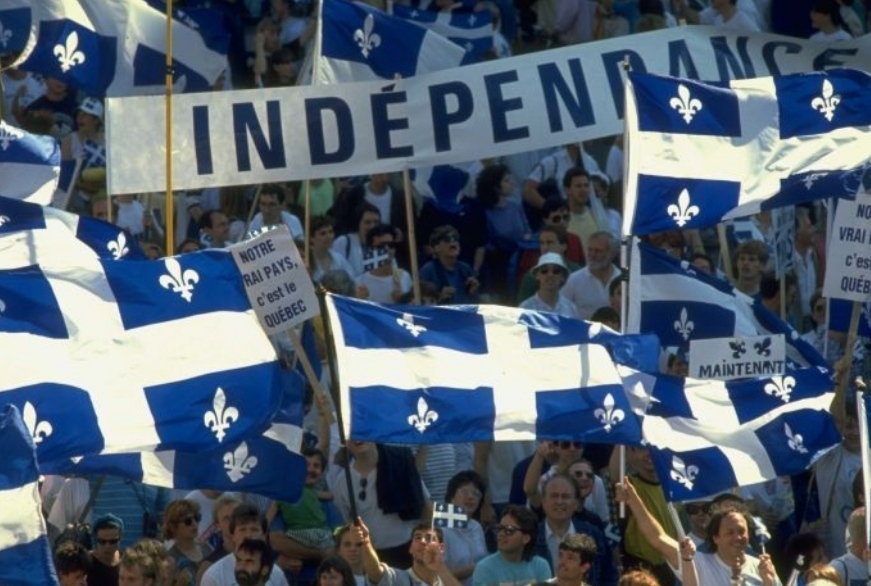
PHOTO: In the past Saint-Jean-Baptiste Day in Quebec has had a separatist angle.
But the traditions of Canada Day are not whole-heartedly embraced by French Canadians in Quebec, who instead give their patriotism to a local celebration in late June.
Saint-Jean-Baptiste Day, introduced by French colonialists in first half of the 17th century, is the Fête nationale or national holiday in Quebec.
While Canada has two national days in one country, the Irish tradition of St Patrick’s Day does the opposite — it gives two countries one holiday.
Ireland’s united sentiment
Often known for drunkenness, the Irish national day commemorates the death of St Patrick, who brought Christianity to Ireland in the 5th century.
St Patrick’s Day brings parades and festivals, the playing of Irish folk music, and the wearing of green attire, and shamrocks — the three-leaf clover.
Historically, the lifting of church restrictions on eating and drinking alcohol has given the holiday an unshakable connection to excessive drinking.
But the well-known celebrations hint at a unique national history.
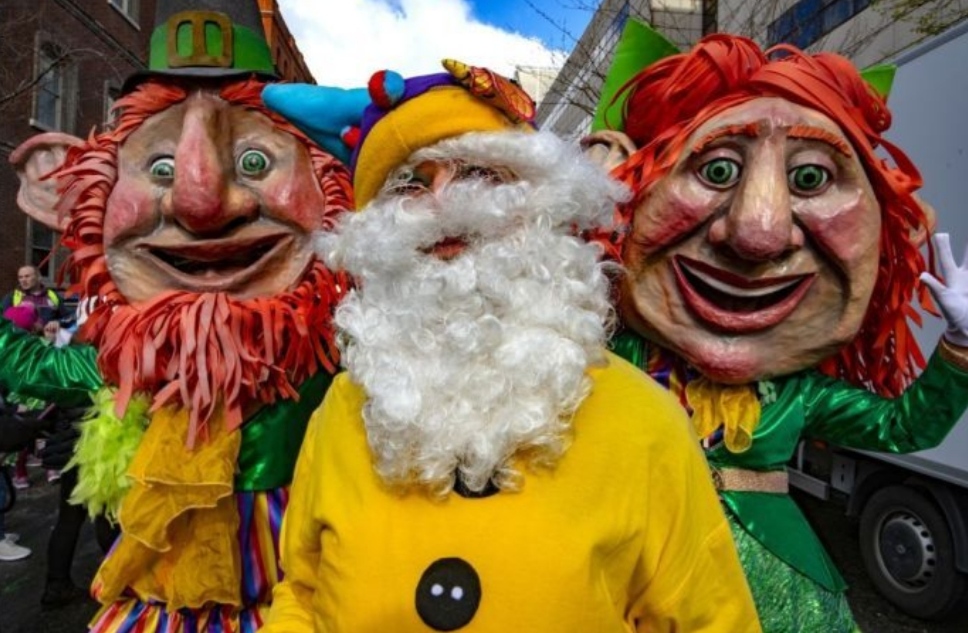
PHOTO: St Patrick’s Day is practiced in both north and south Ireland — and around the world.
It lies, suggests Professor Rowe, in the fact that Saint Patrick’s Day is the national day of not one, but two distinct Irish countries.
“The fact that is practiced in both north and south says a lot of the country’s present status, as two distinct political entities share one national day,” he says.
“The fact that Saint Patrick’s Day is celebrated in both the north and south is an expression of an all-Ireland sentiment.”
It’s one of the key reminders, he says, that Ireland is split into two nation states.
“It reminds us to some degree of a fraught history,” he says.
“Historical tensions between North and South Ireland have been caught up in the whole Brexit controversy and the reintroduction of the border.
“A single national day asks questions about the relationship between the southern Ireland Northern Ireland, and then wider Europe.”



